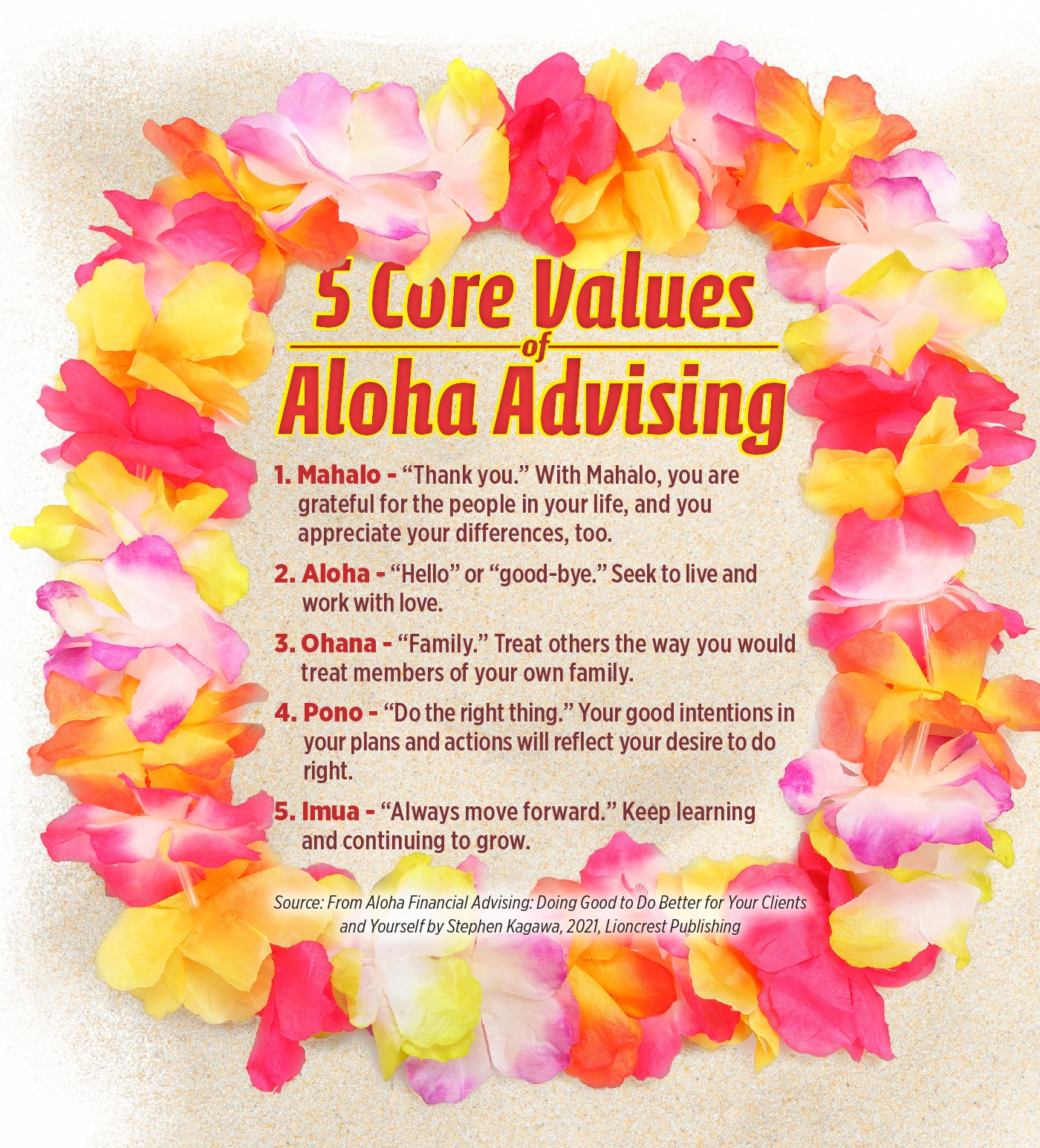3 Simple Steps To Creating Lasting Relationships

You probably know that creating lasting relationships with the people you advise will turn them into long-term clients. Not only that, but they’ll be more likely to heed your advice, they’ll probably find greater financial success, and they may end up referring their friends and family to you.
Did you know there’s a way to go from closing 20%-30% of your cases to creating lasting relationships with nearly everyone who engages with you? All you need to do is follow three simple steps, and the good news is you can start right away. Let me show you how.
1. Learn To Listen
Your first responsibility to people who seek your counsel is figuring out where they want to go in their lives, and your second responsibility is learning where they are relative to where they want to go. What’s important to them about how they enjoy their retirement? What’s important to them about the kind of legacy they leave?
Be truly interested in people and accomplish this important task. Learn to be a good listener.
If you care about people and listen to their stories, they’ll keep sharing more and more with you.
The more they talk, the closer you’ll get to wherever it is they want to go.
Along the way, they’ll begin to trust you because you’re listening and seeking to understand them. You’re not judging. You’re not focused on your opinion or limited by your biases — you’re only trying to learn theirs — and this makes them feel appreciated and understood.
People want to tell someone about their hopes and their worries and their dreams and their fears. The more you seek to understand these things about your clients, the more you will understand and the more trusting will be the dynamic you’ll achieve with those who seek your counsel and guidance.
Focusing on your product is the obstacle that gets in the way of that happening. Your prospects need to feel understood before they can trust you enough to allow you to guide them.
2. Keep An Open Heart And A Quiet Mind
When I speak with prospects and clients, I keep this in mind: Keep an open heart and a quiet mind. “Keep an open heart” means to listen with love and gratitude. Take in this person’s views, opinions, cares, judgments and hopes and all that’s of importance to them. Just listen.
“Keep a quiet mind” means not allowing personal biases, opinions or judgments to interfere with thinking. Seek to do the right thing by this person; learn to understand them, even when you do not agree with them.
This takes time to master. We’re accustomed to letting our biases affect the stories we hear.
We’re accustomed to thinking too much about what we care about instead of considering what others care about. Our experiences, thoughts and ideas like to raise their voices. Unless the story we hear is exactly like ours, we don’t see it for all its beauty.
How often is another person’s story exactly like mine? Never. We seem so similar on the surface, and we can be so different at the core. So I train myself to keep an open heart and a quiet mind.
3. Prepare For Them, Not For Yourself
We’re often told what we’re supposed to sell and how we’re supposed to sell it. At the end of the day, though, what’s most important is finding out what matters to the people we serve. Discover what’s important to them and let go of everything else that you know.
When I began my career in financial advising, proper preparation for every meeting was everything. I had to have the right portfolio of materials and array of products and the right legal forms, and I had to understand all the tax codes, regulations and more.
I still believe in being prepared, and I study constantly to keep up with those things. Bringing a lot of materials to an initial meeting, however, isn’t necessary or even important to me today.
If a prospect says they want specific information on a specific product or topic, of course I show up prepared to discuss it with them. Still, I don’t prepare the way I used to. I don’t show up for an initial meeting with the intention of necessarily presenting a prearranged set of sales concepts or selling them any specific product.
Today, my preparation is much simpler. I take a moment to tell myself why I’m meeting with this prospect. You can call it a prayer, or a meditation, or anything you like. Basically, it’s a reminder to myself that this isn’t about me.
I remind myself that I’m blessed with the opportunity to meet this unique person and learn of the life they seek, and I ask for the strength and the resolve to know that the true guide of how I may add value is within the person in front of me. Their lives, and what’s important to them, will guide us to the right answer for that person.
Start Doing This Today
Preparing this way takes very little time. Still, you must train yourself to do it, and you’ll need practice to do it well.
This method works anywhere, anytime and anyplace in the world. Try it for your next call with a prospect. The first time you do, feel free to bring everything you typically would and leave it all in your briefcase. Let a notepad and pen be your tools, along with your eyes, ears, questions, and your attention to the person in front of you.
Be intentionally present for them. They’ll tell you everything you need to know — and my guess is you’ll find that it becomes the start of a beautiful and lasting relationship.
Stephen Kagawa is CEO of The Pacific Bridge Companies, an organization comprised of various international firms spanning the U.S. and Asia that helps financial advisors guide their clients wherever their lives may lead. He may be contacted at [email protected].






Regulators Finding Ways To Help Insurers With Old Blocks
Tailor A Disability Plan To Your Client’s Needs And Budget
Advisor News
- Affordability on Florida lawmakers’ minds as they return to the state Capitol
- Gen X confident in investment decisions, despite having no plan
- Most Americans optimistic about a financial ‘resolution rebound’ in 2026
- Mitigating recession-based client anxiety
- Terri Kallsen begins board chair role at CFP Board
More Advisor NewsAnnuity News
- Reframing lifetime income as an essential part of retirement planning
- Integrity adds further scale with blockbuster acquisition of AIMCOR
- MetLife Declares First Quarter 2026 Common Stock Dividend
- Using annuities as a legacy tool: The ROP feature
- Jackson Financial Inc. and TPG Inc. Announce Long-Term Strategic Partnership
More Annuity NewsHealth/Employee Benefits News
- TRUMP ADMINISTRATION DROPS MEDICAID VACCINE REPORTING REQUIREMENTS
- SLOTKIN, WHITEHOUSE, AND SCHAKOWSKY INTRODUCE PUBLIC HEALTH INSURANCE OPTION LEGISLATION
- Wittman, Kiggans split on subsidies
Wittman, Kiggans split on subsidies
- Wittman, Kiggans split on subsidies
Va. Republicans split over extending health care subsidies
- Report: Connecticut can offset nearly $1B in federal cuts
More Health/Employee Benefits NewsLife Insurance News